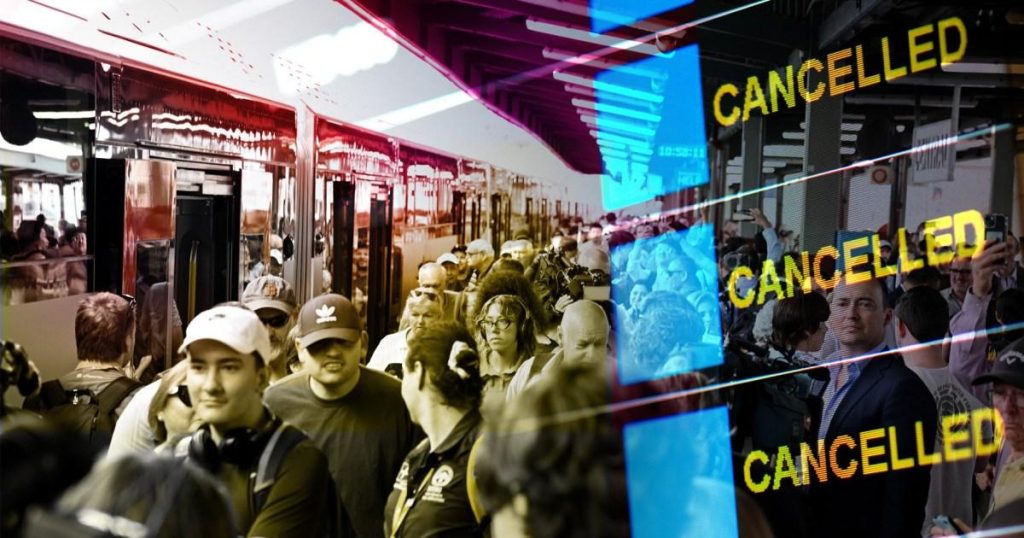The UK rail industry witnessed a mixed bag of results in terms of passenger satisfaction during the period between April and September of the previous year. While overall complaints decreased by 9% compared to the preceding six months, coinciding with an 8% increase in journeys, several train operators experienced a surge in customer grievances. This dichotomy suggests a general improvement in the passenger experience, likely attributable to reduced delays, cancellations, and disruptions that have plagued the railways in recent years. However, the significant increase in complaints for certain operators highlights persistent challenges in delivering consistent service quality across the network.
A closer examination of the data reveals that Caledonian Sleeper, Avanti West Coast, Lumo, and London North Eastern Railway (LNER) topped the list for the number of complaints received per 100,000 journeys. Caledonian Sleeper saw a 4% year-on-year increase, registering 243 complaints per 100,000 journeys. Avanti West Coast recorded 103 complaints per 100,000 journeys, although this represented a 21% decrease compared to the same period the previous year. Lumo, while receiving 98 complaints per 100,000 journeys, demonstrated a significant improvement with a 50% decrease in complaints year-on-year. LNER experienced a 21% increase, reaching 94 complaints per 100,000 journeys. London Overground, despite a 45% rise in complaints, maintained a negligible overall rate of 0.6 complaints per 100,000 journeys. Heathrow Express saw a 28% increase, recording 32 complaints per 100,000 journeys.
The primary reasons for passenger dissatisfaction revolved around punctuality and reliability, which accounted for 17% of all complaints. Overcrowding, specifically the lack of sufficient space to sit or stand comfortably, represented 12.1% of complaints. Issues related to onboard facilities constituted another significant source of grievances, accounting for 7.7% of all complaints. These figures underscore the importance of addressing these core service aspects to enhance passenger satisfaction and build trust in the rail network.
The reported data highlights the disparity in performance among different train operators. While some companies have managed to significantly reduce complaints, others have seen a rise in dissatisfaction, indicating the need for targeted improvements based on individual operator performance. The fact that punctuality and reliability remain the most common causes for complaint emphasizes the ongoing need for investment in infrastructure and operational efficiency to ensure consistent and timely service delivery. The complaints related to overcrowding suggest a need for better capacity management, particularly during peak hours, to provide passengers with a more comfortable travel experience. Addressing concerns about onboard facilities, such as cleanliness, functionality, and accessibility, requires investment in maintenance and upgrades to ensure a pleasant journey for all passengers.
In the context of these findings, the UK government’s plans for railway renationalization gain greater significance. The move towards public ownership aims to address some of the systemic issues contributing to passenger dissatisfaction, such as fragmentation of services and inconsistent investment strategies. By consolidating control over the rail network, the government hopes to improve coordination, streamline operations, and prioritize passenger needs. The renationalization process, which has already identified the first three operators to be brought back under public control, signals a significant shift in the UK’s railway landscape and carries the potential to transform the passenger experience.
The success of this ambitious undertaking will depend on the government’s ability to effectively manage the transition, invest strategically in infrastructure and services, and prioritize passenger satisfaction. The ongoing monitoring of passenger complaints will provide valuable feedback and inform future policy decisions, helping to ensure that the renationalized railway delivers a more reliable, comfortable, and enjoyable travel experience for all. This ongoing assessment will be crucial in measuring the effectiveness of the renationalization plan and ensuring that it truly addresses the underlying causes of passenger dissatisfaction. The data suggests a need for comprehensive and sustained efforts across the rail industry to improve performance and regain passenger trust.











